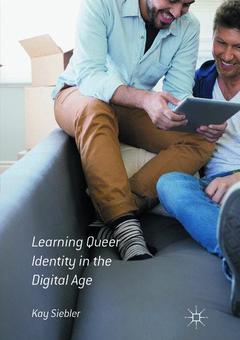Description
Learning Queer Identity in the Digital Age, Softcover reprint of the original 1st ed. 2016
Author: Siebler Kay
Language: English
Subject for Learning Queer Identity in the Digital Age:
Approximative price 105.49 €
In Print (Delivery period: 15 days).
Add to cart
Learning Queer Identity in the Digital Age
Publication date: 05-2018
Support: Print on demand
Publication date: 05-2018
Support: Print on demand
Approximative price 105.49 €
In Print (Delivery period: 15 days).
Add to cart
Learning Queer Identity in the Digital Age
Publication date: 06-2016
Support: Print on demand
Publication date: 06-2016
Support: Print on demand
Description
/li>Contents
/li>Biography
/li>
This book explores, through specific analysis of media representations, personal interviews, and historical research, how the digital environment perpetuates harmful and limiting stereotypes of queerness. Siebler argues that heteronormativity has co-opted queer representations, largely in order to sell goods, surgeries, and lifestyles, reinforcing instead of disrupting the masculine and feminine heterosexual binaries through capitalist consumption. Learning Queer Identity in the Digital Age focuses on different identity populations (gay, lesbian, transgender) and examines the theories (queer, feminist, and media theories) in conjunction with contemporary representations of each identity group. In the twenty-first century, social media, dating sites, social activist sites, and videos/films, are primary educators of social identity. For gay, lesbian, bisexual, transgendered, and transsexual peoples, these digital interactions help shape queer identities and communities.
Introduction: LGBT Identity and Selling Queer.- 1 Queerness in the Digital Environment.- 2 Virtual Generation Gaps and By What Means “Community”.- 3 Lesbian Chic in the Digital Age.- 4 The Digital Swish of Gay Identity.- 5 Transgender Transitions: Sex/Gender Binaries in the Digital Age.- 6 Transqueer Representations: Educating Against the Binaries.
Kay Siebler is Professor of English and Gender and Power Studies coordinator at Missouri Western State University, USA. She has published on topics of queer identity, feminist rhetoric, teaching, student-centered learning, and service learning. She is the author of Composing Feminisms (2008), which documents the impact of feminism and feminist teachers within the field of English education.
© 2024 LAVOISIER S.A.S.




